On Sunday, April 14, the morning light saw thousands of families leaving southern Gaza and flooding the central Gaza Strip, moving through the areas of Deir al-Balah and the Nuseirat refugee camp with the intention of making their way further north. They were going home.
On their backs they carried what remained of their belongings, moving in several waves along Gaza’s coastal road. In the middle of the street standing among the crowd is a young man, Muhammad Sakher, 21. He screams on camera, shouting about how he has been suffocated by displacement and war, and how all that he wants is to go back to his home in northern Gaza.
“Is there anyone who can feel us? Can anyone have mercy on us and help us?” he tells Mondoweiss with indignation. “We just want to go back to our homes. We are civilians, we have nothing to do with the fighting.”
The crowds around him move on, making the slow march with a mix of trepidation and hopefulness. But just before they begin to approach the Israeli checkpoint on al-Rashid Street in western Gaza, the bullets start to fly, followed by tank shells and bombs dropped by drones.
Earlier in the day, dozens of families had confirmed to their relatives in the south by phone that they were able to cross back into northern Gaza and return to their old neighborhoods. News of the successful first wave of return spread rapidly among the displaced families, and they immediately packed up and made their way northward. Shortly after, those same crowds would run back in the direction they had come from, bullets flying over their heads.
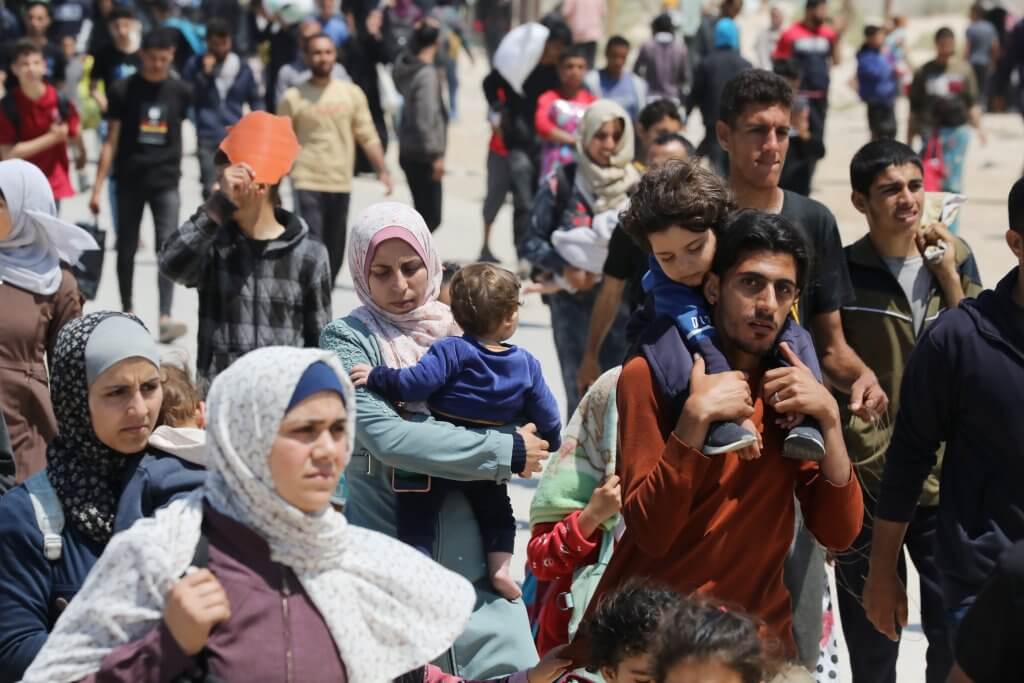
‘We want to go back, even if our homes are piles of rubble‘
The Israeli army had earlier called specific families in the central Gaza region and ordered them to head back north on Sunday morning. They were the first wave of returnees who left their displacement camps and were able to reach the north before phoning their relatives and telling them what had happened.
When thousands more attempted to do the same, the Israeli army shot at them. They had not been sent an invitation.
Details of the number of families that managed to cross earlier or of the number of people who were killed or injured in the second wave are not yet available. But reports from the north confirm that most of the families that arrived were women, children, and the elderly. No men had been allowed through.
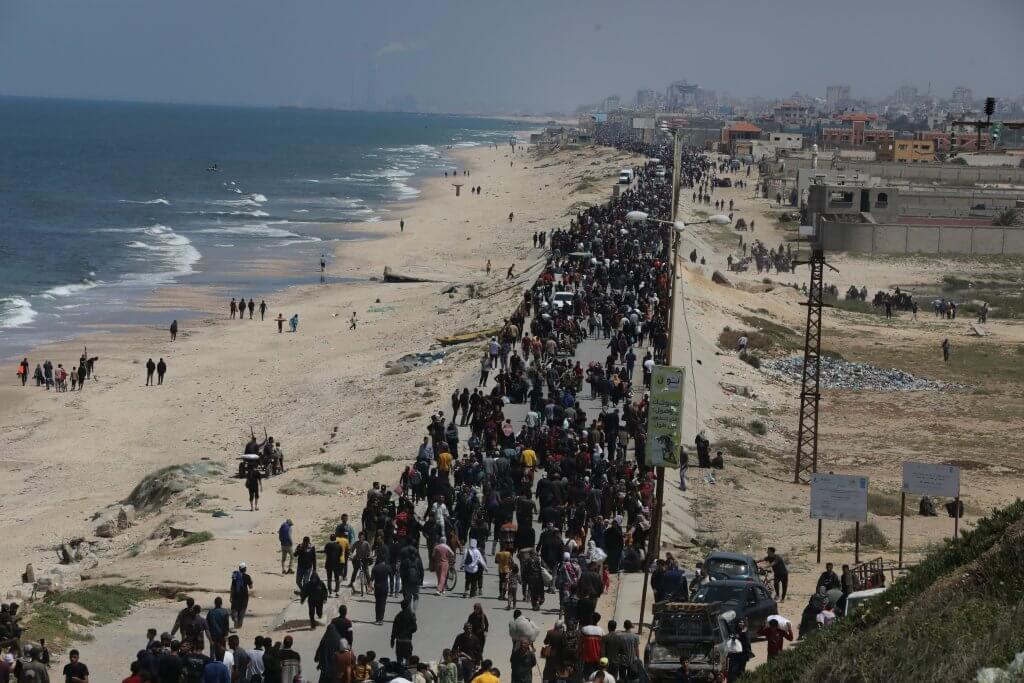
Intisar Madhoun, one of the displaced Palestinians who left Deir al-Balah and joined the later waves of would-be returnees, was forced to return south while fleeing Israeli fire. Breathlessly, she tells Mondoweiss that she can’t even get back on her feet, fear apparent on her face. As she stands and speaks on al-Rashid Street, the sound of the shooting doesn’t stop.
“I want to get back to my home in the north, we’ve been displaced for seven months,” she says. “We can’t keep living in these conditions anymore. Every day is worse than the day before. How long will it stay like this? We’re dying in front of everyone, and no one can help us.”
Intisar is a mother of six. Her family lives in a tent in Deir al-Balah in central Gaza. Last November, she had fled her neighborhood in the al-Zaytoun area east of Gaza City. News later reached her that her home had been bombed. She wants to go back regardless.
“Whatever awaits us in the north in my old neighborhood is better than remaining homeless,” she told Mondoweiss. “I want to go back. Even if I find that my home is a pile of rubble, I will live next to it until we rebuild it again. We need to go back home.”
Tareq S. Hajjaj
Tareq S. Hajjaj is the Mondoweiss Gaza Correspondent, and a member of the Palestinian Writers Union. He studied English Literature at Al-Azhar University in Gaza. He started his career in journalism in 2015 working as a news writer and translator for the local newspaper, Donia al-Watan. He has reported for Elbadi, Middle East Eye, and Al Monitor. Follow him on Twitter at @Tareqshajjaj.
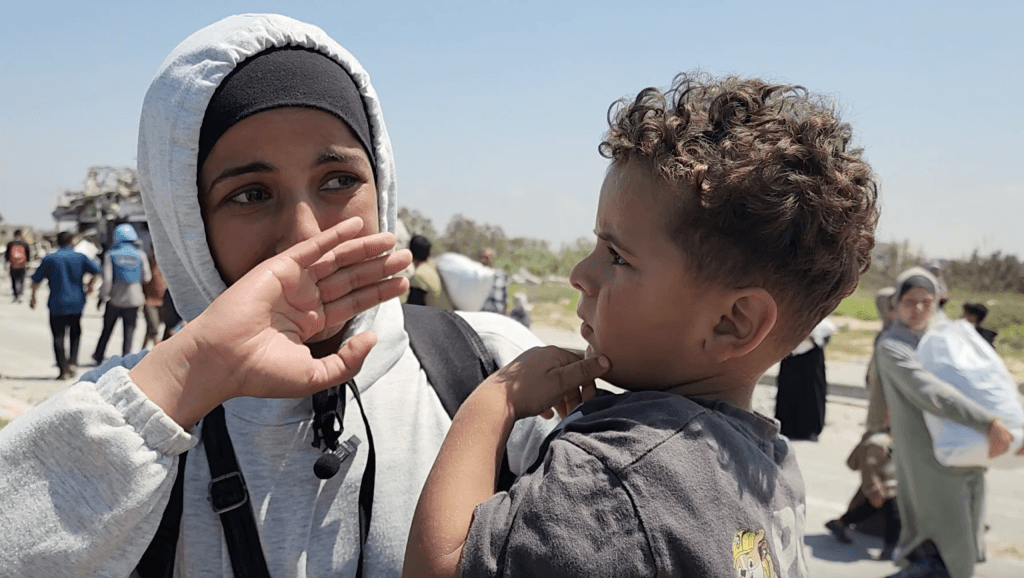
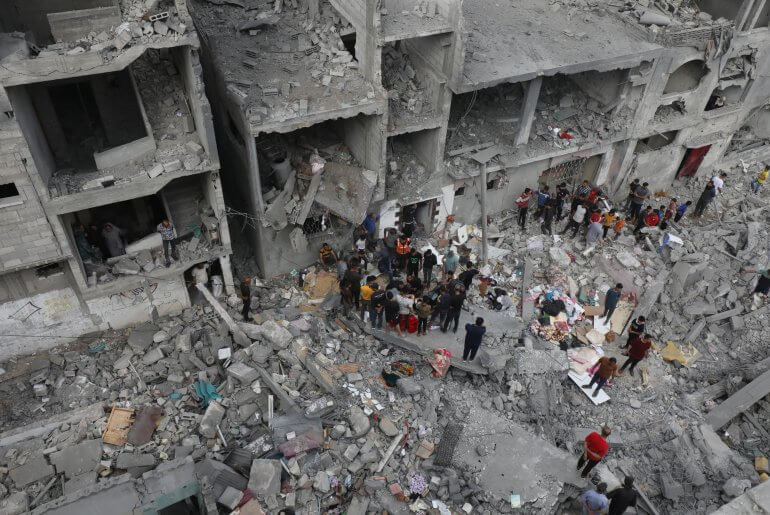
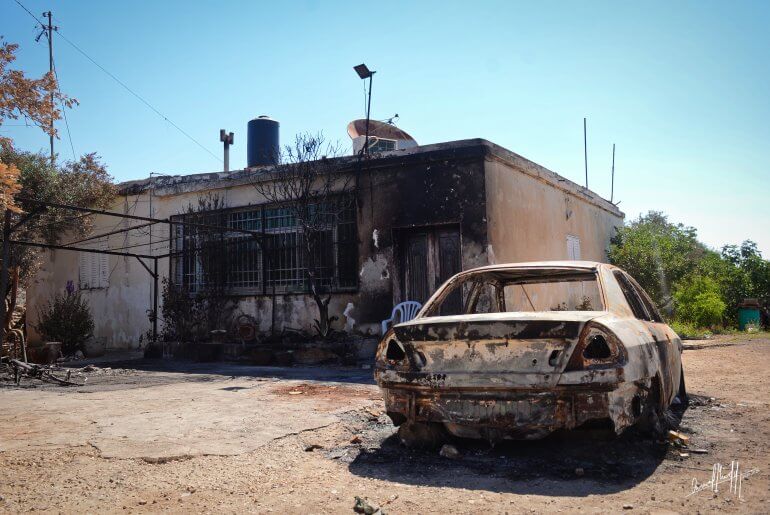
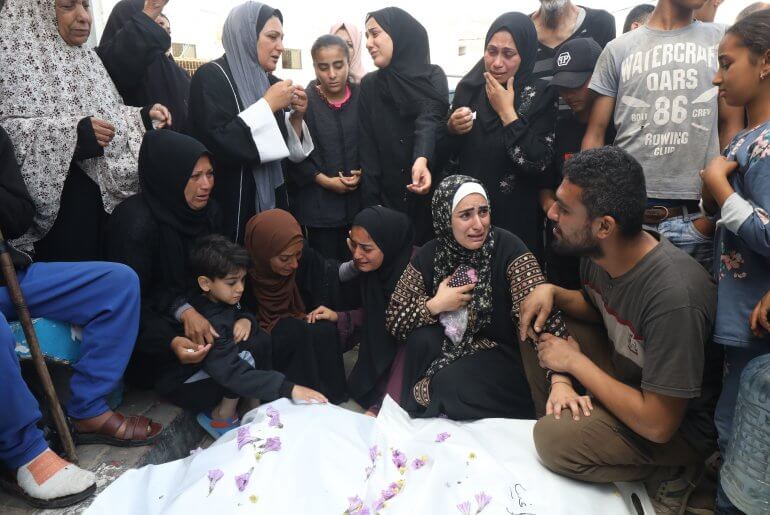
This is sick. And the US is complicit.
Guess “Israel’s right to defend itself” extends to mowing down starving refugees seeking shelter in the rubble of their homes destroyed by American-built 2000 pound bombs.
The only positive from the horrors Israel has inflicted on 2.2 million defenceless refugees is that it has permanently remove the facade of superior Western “values”. We in the West have been exposed as enablers of Israel’s genocide—and utter hypocrites for lying about our commitment to a “rules based world order”. We are the savages, not the enlightened. Josep Borrell had it backwards. It is Europe and North America that is the jungle and the rest of the world, the garden.